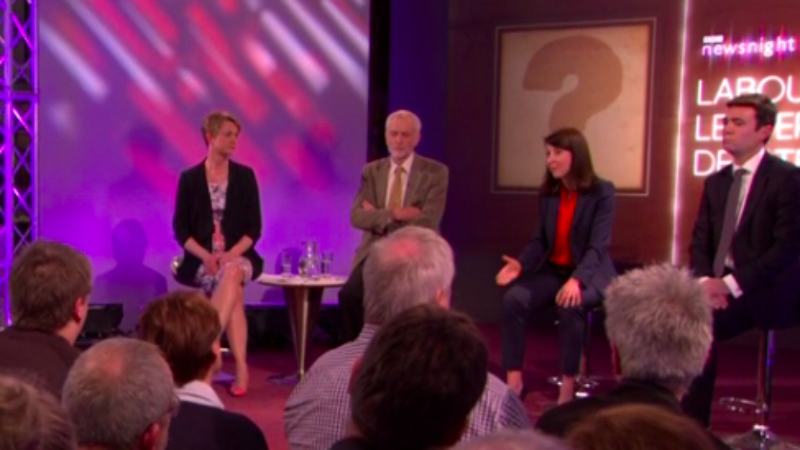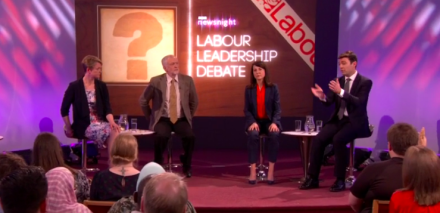
The election defeat was bad enough. I drove off to the count to join Phil Wilson with hope that the night would end with surprises. But I could not anticipate all that unfolded that fateful night. It was like a bad dream. At least we had good news on Phil’s re-election with a bigger share of the vote. If only we could say the same for the many other fabulous Labour MPs contesting the election. You know who you are.
But a bad night got worse soon afterwards. Labour’s decision to run an extended campaign made good sense at the time. A short campaign would cut short the serious questions that needed to be asked to return Labour to electability once more. But it also permitted time to analyse what had gone so wrong in order to make it all go well again. Lessons can’t be learned if we don’t know what they are.
We all know what happened next. Candidates for the leadership were announced while freshly counted ballot papers were still warm. We probably won’t see any in-depth analysis of what went wrong from the party before a new leader is chosen. Published findings by Jon Cruddas have been very insightful and chime with what I and others heard on the doorstep. But before we have time to digest it, the ballot papers have been sent out.

YouGov has continued to show that Corbyn remains in pole position among a lot of party members and a clear favourite in recent YouGov polls. Corbyn’s lead has grown at the expense of the other candidates. Only 1 in 10 voting in the leadership contest voted in the last one. They – or perhaps I should say ‘We’ – are found to prefer Corbyn on first preferences (39%), but Corbyn would lose to Burnham or Cooper when other preferences are taken into account.
Voters joining after Ed Miliband became leader give a clear majority in round one to Corbyn (52%) and his lead is even greater among those who joined after the general election (63%). The party membership might be lurching left, but Corbyn does strong across all groups. He is top among members (49%) and wins outright for £3 sign-ups (55%) and trade unionists (67%).
It remains the case that Corbyn’s supporters want him to be Labour’s next leader, but they can’t see him become Prime Minister. He comes third behind Burnham and Cooper. The surprise is that the issue of ‘electability’ – i.e., being the candidate that can return Labour to 10 Downing Street – is turning out to be a vote loser. Liz Kendall has made much of her being able to win over swing voters who chose the Tories in the last election (who will be needed if Labour is to win an election), but 71% of party members don’t think she could win an election and only 8% give her their first preference.
The biggest surprise is women voters. Corbyn is the favourite for men (48%) and women (61%). Cooper scores only 19% with women and Kendall 4%.
So what to make of this? Corbyn the anti-candidate no one thought might win looks stronger than ever. His campaign is distinctive and even remarkable for all the things that it’s not. It is unpolished, unrehearsed and maybe even untapped. His Corbynomics of raising taxes on business and privatising industries like the railways will be music to the ears of the hard left, but send alarm bells ringing for most voters who had found Labour anti-business.
The point? Arguing about who is most electable in 2020 is not yet a decisive factor for most Labour voters either because it is seen as irrelevant or comparatively unimportant. Voters seem to want a vision putting clear water between the Tories and Labour.
I do not advise any of the leadership candidates, but if I did I would recommend several things. First, make it a choice between Corbyn and yourself. Secondly, the negative campaigning has not worked. I’ve already argued for the 11th Commandment: Thou Shalt Not Speak Ill of Thy Fellow Labour Party Member. The more Corbyn is attacked, the higher his poll numbers. But also we must remember in a few weeks this will be over and Labour will need a united front to take on the Tories. We’re all on the same side. Thirdly, they may each need a game changer. Not a micropolicy or celebrity endorsement, but something that can turn the tide. Thinking – and acting – outside the box.
But let me also offer words of advice to Corbyn’s campaign to help them, too. I wouldn’t be complacent: we all know how the strong polling the Liberal Democrats had leading into 2010 and the lacklustre results (and worse) that followed. Corbyn has been right to remain upbeat and positive. He should now not tack to the right, but begin making clear overtures to other parts of the party. This is not about changing his position, but opening it up and calm fears of his non-supporters. Corbyn can afford to branch out and should to seal victory.
If a week is a long time in politics, the leadership contest will feel like a lifetime. The other candidates must up their game if they’re to stay in the race. It’s been a surprise so far no matter which candidate is one’s favourite. I suspect more surprises are to come, too.
Thom Brooks is Professor of Law and Government at Durham University, a columnist for regional newspaper The Journal and Communications Lead for Sedgefield MP Phil Wilson




More from LabourList
Almost half of Labour members oppose plans to restrict jury trials, poll finds
‘How Labour can finally fix Britain’s 5G problem’
‘The University of the Air – celebrating 60 years of Harold Wilson and Jennie Lee’s vision’